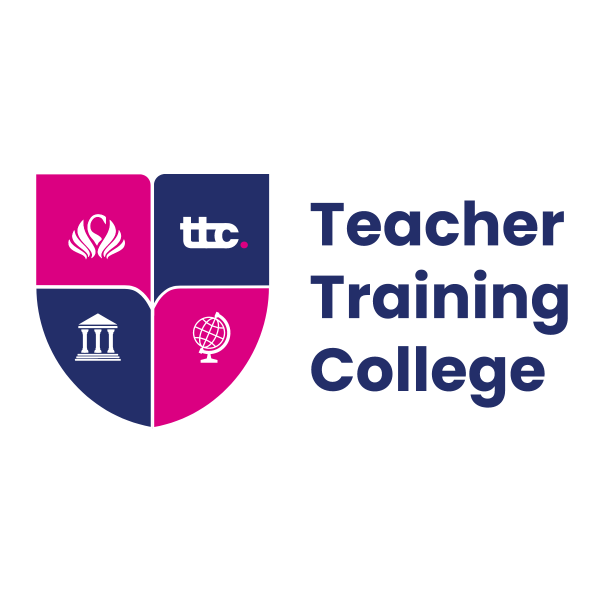In the UK, teacher training qualifications are essential for ensuring that teachers are well-prepared to provide high-quality education. These qualifications equip teachers with the necessary skills, knowledge, and pedagogical expertise to effectively manage classrooms and foster student learning.
Among the various pathways to becoming a qualified teacher, the Postgraduate Certificate in Education (PGCE) and the Postgraduate Certificate in Education International (iPGCE) are two prominent options.
The PGCE is a widely recognised qualification in the UK, designed for those who wish to teach in schools across the country. It combines academic study with practical teaching experience, allowing prospective teachers to develop their skills in real classroom settings.
On the other hand, the iPGCE is tailored for individuals looking to teach in international schools or other educational settings outside the UK. While both qualifications aim to prepare educators for the teaching profession, the key differences lie in their focus, structure, and intended career paths. The PGCE emphasises the UK curriculum and classroom practices. In contrast, the iPGCE also addresses the challenges and opportunities of teaching in diverse global contexts and is provided for learners outside of the UK.
What is a PGCE?
A PGCE (Postgraduate Certificate in Education) is a well-recognised teaching qualification in the UK that enables graduates to teach in schools. This qualification is ideal for individuals who wish to pursue a career in teaching after completing their undergraduate degree.
Entry Requirements:
To enrol in a PGCE programme, candidates typically need an undergraduate degree in a relevant subject and GCSEs in English and Mathematics (and Science for primary education) at grade C or above. Some programmes may also require prior school experience.
Course Structure:
A PGCE course usually combines theoretical and practical elements. It involves classroom-based training sessions on educational theory, pedagogy, and subject-specific teaching methods. Additionally, students undertake several teaching placements in schools, gaining hands-on experience under the guidance of experienced mentors.
Benefits of a PGCE:
One of the main advantages of a PGCE is the comprehensive preparation it provides for a teaching career. Graduates of PGCE programmes are well-equipped with both the theoretical knowledge and practical skills needed to excel in the classroom. The qualification is highly regarded by employers and is a critical step towards achieving Qualified Teacher Status (QTS) in the UK. Furthermore, a PGCE offers opportunities for professional development and career advancement within the education sector.
PGCE is the right education degree if:
You aspire to teach in UK state schools.
Your goal is to earn a QTS in the UK
You prefer full-time, on-campus study.
You have secured a scholarship or your school will provide financial support.

Types of PGCEs
The Postgraduate Certificate in Education International (iPGCE) is a teacher training qualification aimed at individuals who wish to pursue teaching careers outside the UK. Unlike the traditional PGCE, which is tailored for teaching within the UK school system, the iPGCE focuses on the principles and practices of international education, preparing educators for diverse global classrooms.
Target Audience:
The key demographic for the iPGCE includes international students who plan to teach in their home countries or other overseas locations, as well as career changers seeking opportunities in international schools. This qualification is particularly appealing to those who want the flexibility of online learning combined with practical experience.
Course Structure:
The course structure of a iPGCE typically involves online learning modules, allowing students to study from anywhere in the world. These modules cover various educational theories, teaching methodologies, and curriculum design. In addition, virtual placements or in-person placements at local international schools provide hands-on teaching experience.
Benefits of a iPGCE:
One of the key benefits of a iPGCE is its flexibility, making it accessible to a wider range of students. It accommodates different time zones and personal schedules, allowing learners to balance their studies with other commitments. Furthermore, the iPGCE opens up global career opportunities, enabling graduates to teach in international schools and diverse educational settings around the world.
iPGCE (International) is the right education degree if:
You are already engaged in teaching abroad.
Your goal is to improve your CV by obtaining a formal education qualification.
You do not intend to teach in the United Kingdom.
Pursuing this qualification while working aligns with your schedule.

Key Differences Between PGCE and iPGCE
The key difference between a PGCE (Postgraduate Certificate in Education) and a iPGCE (Postgraduate Certificate in Education International) lies in their delivery mode and target audience. A PGCE is typically classroom-based, with significant in-person training and school placements within the UK, leading to Qualified Teacher Status (QTS). It is designed for those who intend to teach in the UK and requires hands-on experience in UK schools.
In contrast, an iPGCE is aimed at international students and career changers who wish to teach outside the UK. The iPGCE is often delivered online, allowing for greater flexibility in terms of location and scheduling. This course usually includes virtual placements rather than in-person classroom experiences. While an iPGCE provides valuable pedagogical knowledge and skills, it does not automatically confer QTS, though it is recognised in many international educational contexts.
Additional advice on pursuing a PGCE or iPGCE:
If you are already teaching abroad, ask your current school if they would support you in pursuing an iPGCE course. Many schools are keen to invest in their teachers’ professional development.
Don’t hesitate to seek help. If you have questions about the PGCE or iPGCE programmes, contact the institutions that offer them or connect with educators who have completed these courses.
So when deciding between a PGCE and an PGCE, it’s essential to consider your career goals and teaching direction. As mentioned above a PGCE is recognised widely within the UK, is often required for obtaining a teaching license and is highly valued in many independent schools across the country. This course typically involves practical classroom-based training within the UK education system, providing hands-on experience that is crucial for developing teaching skills.
On the other hand, the iPGCE, offered in collaboration with international partner institutions, is designed for those planning to teach outside the UK. While it doesn’t directly lead to a UK teaching licence, it provides a solid foundation in educational theory and practice, making it suitable for educators working in international settings where the local education system does not require UK-qualified status. This flexibility makes the iPGCE a popular choice for teachers in many independent schools worldwide.
Teacher Training College qualifications
Our PGCE course
Our unique teacher training qualification combines school-based learning with a university-led programme, delivered by expert educators. You’ll be based in a school, receiving support from a Personal University Tutor and an in-school mentor. The programme covers Primary (ages 5-11 and 7-11) and Secondary levels (ages 11-16 and 11-18), including specialised subjects for ages 14-19.
The qualification uses online teaching materials, webinars, and live tutorials for practical learning experiences. You’ll collaborate with fellow trainees in weekly online sessions and termly educational conferences. Additionally, applicants can teach in independent schools. With a broad network of partner schools, you may train in a location that suits you.
Our iPGCE with iQTS (International Qualified Teacher Status) course
The International Qualified Teacher Status (iQTS) is a new accreditation issued by the Department for Education (DfE) to enable trainee teachers based outside England to gain qualified teacher status (QTS).
We offer two student entry routes to this qualification – an employed route and a non-employed route which can be undertaken in either the Primary or Secondary age phases.

For more information about our Teacher Training Qualifications, or if you have a general enquiry please get in touch today and someone will be in contact shortly.
Don’t forget to check out our information webinars with Sean Breslin, which you can watch on Eventbrite.
If you would like any more information, please do not hesitate to contact us by email at [email protected] or call us on 0330 390 0529.



